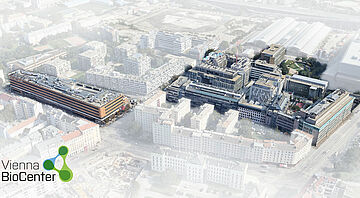The Marie Skłodowska-Curie Actions (MSCA) support researchers at all stages of their career, regardless of age and nationality. Researchers working across all disciplines are eligible for funding. The MSCA also support cooperation between industry and academia and innovative training to enhance employability and career development.
Studying schizophrenia in a dish
Understanding how modifications in the DNA sequence make individuals susceptible to complex diseases such as schizophrenia is an important and challenging question. Most of the mutations associated with such diseases are present in the “non-coding” regions of the genome that regulate when, where and to what extent a certain gene should be active. However, due to lack of suitable experimental systems, it has been difficult to address the impact of non-coding mutations associated with such diseases.
“Using the brain organoid technology developed in the Knoblich lab, I plan to investigate whether and how the mutations associated with such neuropsychiatric disorders impact gene regulation in the disease-relevant tissues,” says Jaydeep Sidhaye, who will work on his postdoc project in the Knoblich Lab at IMBA. “This project will benefit from our collaboration with Alex Stark’s group at IMP that has developed methods to study activity of multiple gene regulatory elements at once. Overall, this approach will enable us to understand the functional impact of non-coding mutations directly in the disease-relevant human tissue.”
“Sugar coated” cancer cells
In recent years, the treatment of unresectable cancer has undergone a paradigm shift with the advent of immunotherapy. Yet, despite the great progress made in the field, the majority of cancer patients still do not respond to the immunotherapies that are currently available . “A major challenge for advancing immunotherapy in cancer is to move beyond the conventional immune checkpoint blockade and to identify new key immunoregulatory mechanisms,” says Stefan Mereiter, who will be joining the Penninger lab at IMBA to work on decoding the cancer immune response driven by the glycoproteome. One of the prime cancer cell mechanisms whose immunomodulatory function is poorly understood is the aberrant expression of glycans. Glycoproteins and their glycosylation are at the forefront of cells, dictating their interaction with the environment and regulating their recognition by other cells. The complex process of glycosylation is altered during cancer progression and plays a critical role in shaping the microenvironment of the tumour. “By using a combination of cutting-edge glycoproteomics, glycomics and immune profiling approaches in innovative cancer models, we aim to shed light on the complex interplay between the cancer cell glycoproteome and immune recognition. In doing so, we aim to identify new biomarkers and to provide new therapeutic targets for the next generation of immunotherapies.”
Studying gene regulation in antibody-secreting cells
Robyn Schenk, postdoc with Meinrad Busslinger, is interested in highly specialized immune cells known as plasma cells. Plasma cells are formed during an immune response and their job is to produce antibodies. Antibodies help to destroy the invading pathogen and, most importantly, provide long-term immunity. For example, when you get vaccinated, the goal is to develop antibodies so that you will be immune to the disease.
Plasma cells develop from another type of immune cell, called a B cell. Although these cells are related, they are completely different to each other in terms of the genes that they express, and this enables them to perform their different functions. These different gene expression programmes are controlled by proteins called transcription factors. “My research will be to study transcription factors that are essential for the switch from a B cell to a plasma cell and determine what genes they regulate. To do this, I’ll be using a novel protein degradation approach combined with cutting edge sequencing methods developed here at the VBC”, says Robyn Schenk. “This will help us to understand what cellular pathways are required for plasma cells to fulfil their role as these important antibody-producing cells.” Schenk’s mentor Meinrad Busslinger has a wealth of experience in studying the transcription factors that regulate B cell development: “His group is the ideal environment to further study how B cells develop into antibody-secreting plasma cells at the molecular level.”
The foundations of transcriptional repression
An organism’s development and homeostasis critically depend on the accurate regulation of gene expression. Jelle Jacobs is a postdoc in the lab of Alexander Stark, which aims to elucidate the mechanisms behind this transcriptional regulation at the level of enhancer and core-promoter genomic elements, and the transcription factor and cofactor proteins that mediate the transcriptional output. The field has so far mainly focused on transcriptional activation, while repression of genes that should not be expressed is an important aspect of transcriptional regulation. This is mediated by a specific class of TFs termed repressors and while their functions are crucial, how repression is achieved mechanistically has remained elusive. “In my project, I will study the functional properties of repressors and the mechanisms of active repression”, says Jacobs. “I will test whether transcriptional repressors are usually dominant or if they can only silence certain activators but not others. To further uncover the mechanisms behind active repression, I will assess changes to DNA accessibility, histone modifications, Pol II activity and protein composition during acutely triggered active repression.” This project aims to improve our mechanistic understanding of transcriptional repression, which despite its importance for development and disease has remained poorly understood.



